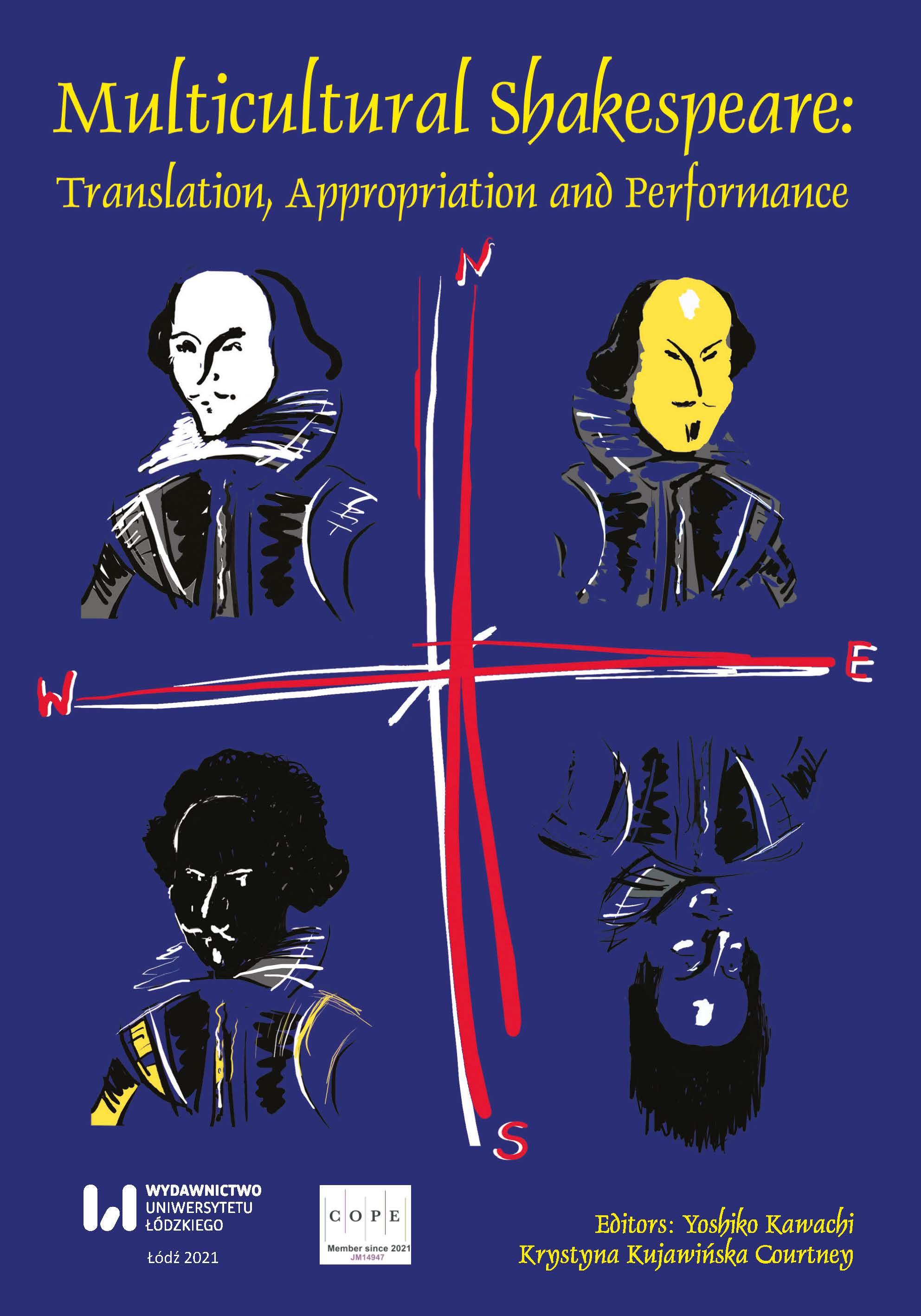Performing Calibanesque Baptisms: Shakespearean Fractals of British Indian History
Performing Calibanesque Baptisms: Shakespearean Fractals of British Indian History
Author(s): Arup K. ChatterjeeSubject(s): Language and Literature Studies
Published by: Wydawnictwo Uniwersytetu Łódzkiego
Keywords: Shakespeare; Caliban; Peter Pope; Catherine Bengall; John Talbot Shakespeare; genealogy; New Historicism; anecdotes; fractals; London
Summary/Abstract: This paper uncovers new complexity for Shakespearean studies in examining three anecdotes overlooked in related historiography—the first Indian baptism in Britain, that of Peter Pope, in 1616, and its extrapolation in Victorian history as Calibanesque; the tale of Catherine Bengall, an Indian servant baptised in 1745 in London and left to bear an illegitimate child, before vanishing from Company records (like Virginia Woolf’s invention Judith Shakespeare vanishing in Shakespeare’s London); and the forgotten John Talbot Shakespear, a Company official in early nineteenth-century Bengal and descendant of William Shakespeare. I argue that the anecdotal links between Peter, Caliban, Catherine, Judith, Shakespear and Shakespeare should be seen as Jungian effects of non-causal “synchronic” reality or on lines of Benoit Mandelbrot’s conception of fractals (rough and self-regulating geometries of natural microforms). Although anecdotes and historemes get incorporated into historical establishmentarianism, seeing history in a framework of fractals fundamentally resists such appropriations. This poses new challenges for Shakespearean historiography, while underscoring distinctions between Shakespeareanism (sociological epiphenomena) and Shakespeare (the man himself).
Journal: Multicultural Shakespeare: Translation, Appropriation and Performance
- Issue Year: 23/2021
- Issue No: 1
- Page Range: 59-74
- Page Count: 16
- Language: English

